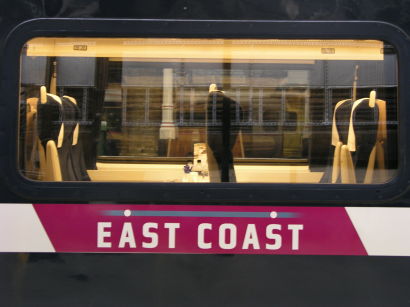EAST COAST has spoken out over continuing problems on its core route between London and Edinburgh, urging Network Rail to improve its standard of maintenance.
A fatality in Bedfordshire caused major delays on Friday, but then matters were made even worse by the following failure of a signal cable.
A person died at Biggleswade early in the afternoon after being struck by a train. Police arrived at the scene and detained the train involved.
As a result, the East Coast Main Line was blocked for a time between Stevenage and Peterborough, being re-opened at 15.42.
But the queue of trains which had built up had only started to be cleared when a signal cable then failed at Retford, shortly before 17.00.
East Coast said the combined effect of the two incidents was 'widespread disruption'. The company added that 'many trains were unable to move for over two hours, having queued to pass the temporary block'.
Among the thousands of passengers involved were three of the four panelists on Radio 4's Any Questions, who were travelling north to appear on the live programme at the Shildon site of the National Railway Museum, near Darlington.
As only one panelist could get to the site the BBC replaced its outside broadcast, which should have begun at 20.15, with a recording of a previous edition.
It is not the first major problem on the East Coast Main Line in recent weeks.
Ten trains were stranded for several hours between York and Northallerton during the afternoon of Saturday 26 March after components failed at York signalling panel, requiring software to be reinstalled. In all, more than 3,000 passengers were thought to have been delayed.
East Coast apologised to all those who were delayed on Friday, adding: 'Infrastructure failures on the East Coast Main Line have been all too frequent of late – causing massive delays and inconvenience for our customers, and Network Rail has to improve its performance measurably.'
Network Rail has yet to comment.
There were more problems between Cardiff and Newport yesterday, after a signalling problem in the area. Only limited train services could keep going, and many passengers were delayed. Again, it was the second problem in South Wales recently. Many early morning trains were halted for up to two hours on 22 March, when a mains fault triggered a further failure in a standby generator at Cardiff panel.
The cause of yesterday's problem in Wales is unclear. There were suggestions that there had been a cable theft, but First Great Western was later reported to have blamed an 'equipment failure'.


